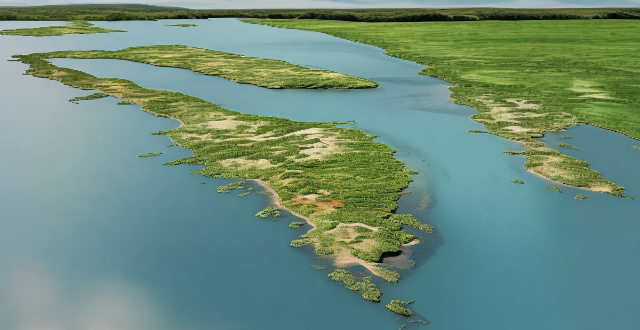Small island states face several challenges in the context of global climate governance, including limited resources, high vulnerability to climate impacts, limited influence in global climate governance, dependence on international support, limited capacity for research and data collection, and socio-economic challenges. Addressing these challenges requires a collaborative effort between small island states, developed countries, and international institutions.

Main Challenges Faced by Small Island States in the Context of Global Climate Governance
Small island states face a multitude of challenges in the context of global climate governance. These challenges are primarily due to their unique geographical and socio-economic conditions, which make them particularly vulnerable to the impacts of climate change. The following are some of the main challenges faced by small island states:
1. Limited Resources
Small island states often have limited financial resources, which can hinder their ability to implement effective climate change adaptation and mitigation measures. This lack of resources also affects their capacity to participate fully in global climate governance processes, such as negotiations at the United Nations Framework Convention on Climate Change (UNFCCC).
2. High Vulnerability to Climate Impacts
Due to their low-lying coastal locations, small island states are highly vulnerable to sea-level rise, storm surges, and other climate-related hazards. This vulnerability is exacerbated by factors such as limited freshwater resources, high dependence on imported food, and fragile ecosystems.
3. Limited Influence in Global Climate Governance
Despite being among the most affected by climate change, small island states often have limited influence in global climate governance processes. This is partly due to their small size and population, which can result in them having less bargaining power during international negotiations.
4. Dependence on International Support
Small island states often rely heavily on international support for financing and technical assistance to address climate change. However, this support can be unpredictable and subject to the priorities and policies of donor countries and institutions.
5. Limited Capacity for Research and Data Collection
Small island states often have limited capacity for conducting research and collecting data on climate change impacts and adaptation strategies. This can hinder their ability to develop evidence-based policies and interventions that are tailored to their specific needs and circumstances.
6. Socio-Economic Challenges
Small island states often face significant socio-economic challenges, such as high unemployment rates, limited economic diversification, and dependence on tourism and other climate-sensitive sectors. These challenges can exacerbate the impacts of climate change and hinder efforts to build resilience and adapt to changing conditions.
In conclusion, small island states face numerous challenges in the context of global climate governance due to their unique geographical and socio-economic conditions. Addressing these challenges requires a collaborative effort between small island states, developed countries, and international institutions to ensure that the voices and needs of these vulnerable nations are adequately represented and addressed in global climate governance processes.